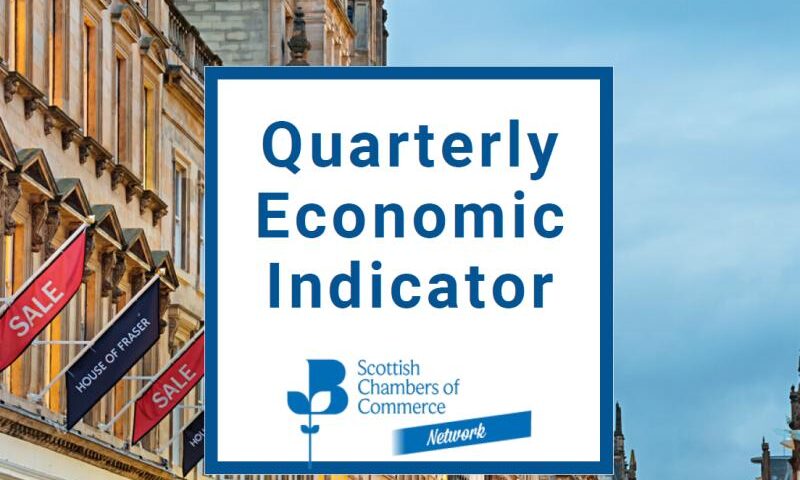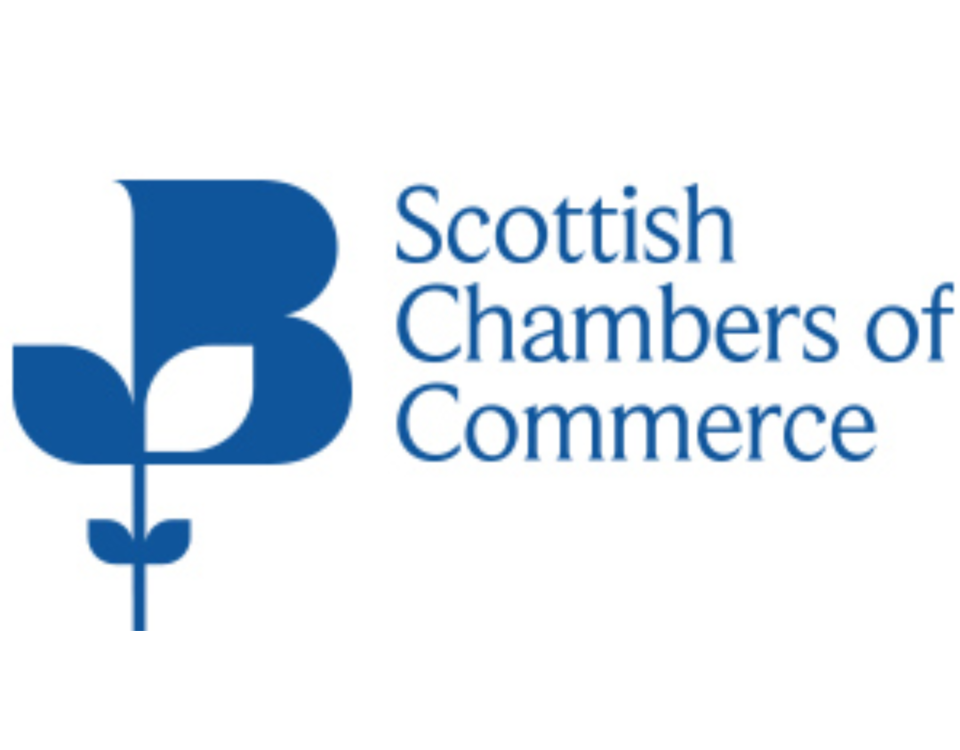Rising Costs, Declining Confidence And Prospects Of Recession Weigh Down Hopes Of Business Growth

Councillors Unite In Funding Plea To First Minister
19/01/2023
Success For Greenock Levelling Up Bid
19/01/2023Rising Costs, Declining Confidence And Prospects Of Recession Weigh Down Hopes Of Business Growth

The latest findings from a leading Scottish business survey by the Scottish Chambers of Commerce (SCC) show Scottish businesses and the economy faltering under increasing cost pressures and declining business confidence.
As a result, cash flow and profits are falling, investment decisions have paused, and firms are raising prices and struggling to recruit and retain staff.
KEY FINDINGS
- PRICE RISES NOW A REALITY: 82% of all firms indicate that they intend to raise prices over the next quarter. This is a successive record high for the survey. The retail and tourism sectors had the highest proportion of firms indicating future price rises at 77% and 76% of firms respectively.
- LABOUR COSTS OVERTAKE ENERGY BILLS AS TOP COST PRESSURE: Concern over energy bills has halved since the previous quarter, attributed to the UK Government’s energy bill relief scheme which took effect in October 2022. Labour costs have now taken precedence as the leading cost pressure, cited by over seven in ten firms (72%). Concern over fuel costs and raw material prices remains high, both being cited by six in ten firms.
- INFLATION REMAINS TOP BUSINESS CONCERN: Concern about inflation has eased for a second successive quarter but remains high with 8 in 10 firms (80%) of firms citing it over Q4. The next highest concerns are interest rates (50%) which have seen nearly a 15% increase since Q3 2022.
- CONFIDENCE DECLINING: On balance, all firms have reported a fall in confidence compared to the previous quarter and a more significant fall compared to last year. On a sectoral basis, every sector reported a fall in confidence with retail and tourism seeing the largest fall when compared to the previous quarter.
Stephen Leckie, President of the Scottish Chambers of Commerce said:
“The end of 2022 turned out to be a bleak period for Scottish businesses. All sectors are coming under immense strain because of upfront costs which are hitting cash flow and profits. Additional cost pressures are adding to this burden, particularly with rising staff costs, which is leading the majority of businesses to raise prices.
“There can be little doubt that recessionary effects are dragging the Scottish economy away from recovery and growth.
“The survey results paint a particularly worrying picture for the retail and tourism sectors with contractions in future sales and investment intentions.
“As relief packages come to an end, businesses are extremely concerned, particularly on energy prices which continue to be volatile. Any sudden removal of this support could severely impact business survivability.
“We call on the UK and Scottish Government to urgently support SMEs by providing relief packages and a clear economic plan.”
On energy bills, Stephen Leckie said:
“Energy bills continue to be a significant cost pressure for firms. While the survey shows that the energy bills relief scheme has helped since it came into effect in October, the lack of further support is a major cause for concern.
“The successor to the energy bills relief scheme from March will see an 85% drop in the financial envelope of support which will fall short for thousands of Scottish businesses who are seriously struggling.
“While we welcome the 12-month duration of this package, the value is nowhere near enough and that means for some firms, energy will now be a cost too far. We would urge the UK Government to revisit the relief package urgently.
“While considerable uncertainty remains, households and businesses will face a further increase in energy costs from 1st April 2023. Given wider economic challenges, this will harm those most in need, and further targeted support for those most vulnerable will be necessary.”
On inflation and price rises, Stephen Leckie said:
“While concern from inflation has eased slightly compared to the previous quarter, eight in ten firms are still citing it as a pressing concern for their business and this is likely to persist for much of 2023. Concern over interest rates has been reported by half of the Scottish firms, seeing record highs for some sectors.
“These concerns are forcing businesses to act by raising prices. A new record number of firms (82%) tell us that they will do this over the next quarter, highlighting the scale of the challenge at hand.”
On Scotland’s workforce, Stephen Leckie said:
“Persistent challenges over access to labour and retaining talent are beginning to take precedence as a leading concern for firms. Both the Scottish and UK Governments need to act quickly to alleviate the challenges in the workforce.
“At Westminster, we need to see a flexible migration system that aligns with economic need so businesses can hire and attract the international workforce to live and work in the UK. With more vacancies in the UK than people available to fill them, this is an essential route that cannot be avoided if we are serious about economic growth.
“At Holyrood, we have called for measures to tailor elements of the careers service offering to bring older workers back into the workforce, alongside measures to offer more opportunities for economically disadvantaged individuals, to support the competitiveness of Scottish businesses.”
Commenting on the results, Mairi Spowage, Director at the University of Strathclyde’s Fraser of Allander Institute, said:
“Setting out the economic and fiscal context can currently feel a bit like groundhog day, with concerns about economic conditions simply seemingly getting worse as we kick off 2023. The consensus now is that the UK and Scottish economies are in recession: and the only debate among forecasters is exactly when it starts and how many quarters long it will be.
“Front and centre for both consumers and businesses are of course energy costs. While the UK Government has put in place very costly help for both groups, it does mean that there is much more pain still to come in April.
“The Energy Bill Discount Scheme announced last week is much less generous than the scheme in place before the end of March – and will see energy costs for some businesses potentially double yet again.
“As is clear from the survey published today, though, the story of increased costs is not just about energy – labour market costs are also a significant part of the story. The latest data for wage growth in the UK published this week shows that pay in the private sector increased by 7.2% in the 3 months to November.
“In the last few months, we have seen falls in the number of vacancies in the UK compared to the heights of the summer, but there is still an incredibly tight labour market: making vacancies very hard to fill and pushing up costs.
“We must be positive about the ability of Scottish businesses to weather the storm – they have proven their resilience over the past three, very challenging, years. What is clear is that they will have to draw on that further during 2023.”
 Loading...
Loading...
Please Note:
• This survey was conducted in November & December of 2022. 310 firms responded to the Q4 2022 edition of the survey.
• 94% of respondents to the survey were SMEs: these are businesses with less than 250 employees.
• The Quarterly Economic Indicator is Scotland’s longest-running economic survey of its kind, operating since 1990.
• Scottish Chambers of Commerce is Scotland’s largest business network with over 12,500 business members, across a network of 30 regional Chambers of Commerce, providing business support, business intelligence, and business connections.
FEEDBACK FROM BUSINESS:
• “The biggest business issue is uncertainty, hard to plan for anything just now. Change can be good but not in a very short period of time.” – Services firm in Aberdeen
• “Business pressures are severe right now. We are suffering with recruitment and retention. With no staff, we have no business, despite the measures we are putting in place to aid retention.” – Retail firm in Renfrewshire
• “Increases in all business costs, with no sight of where it will all stop, are throttling our attempts to grow the business. Orders are looking positive but with not knowing how the economy will perform in the short and longer term it is curtailing the investment we would like to put into the company. Outlook on the economy feels bleak.” – Manufacturing firm in the Highlands


